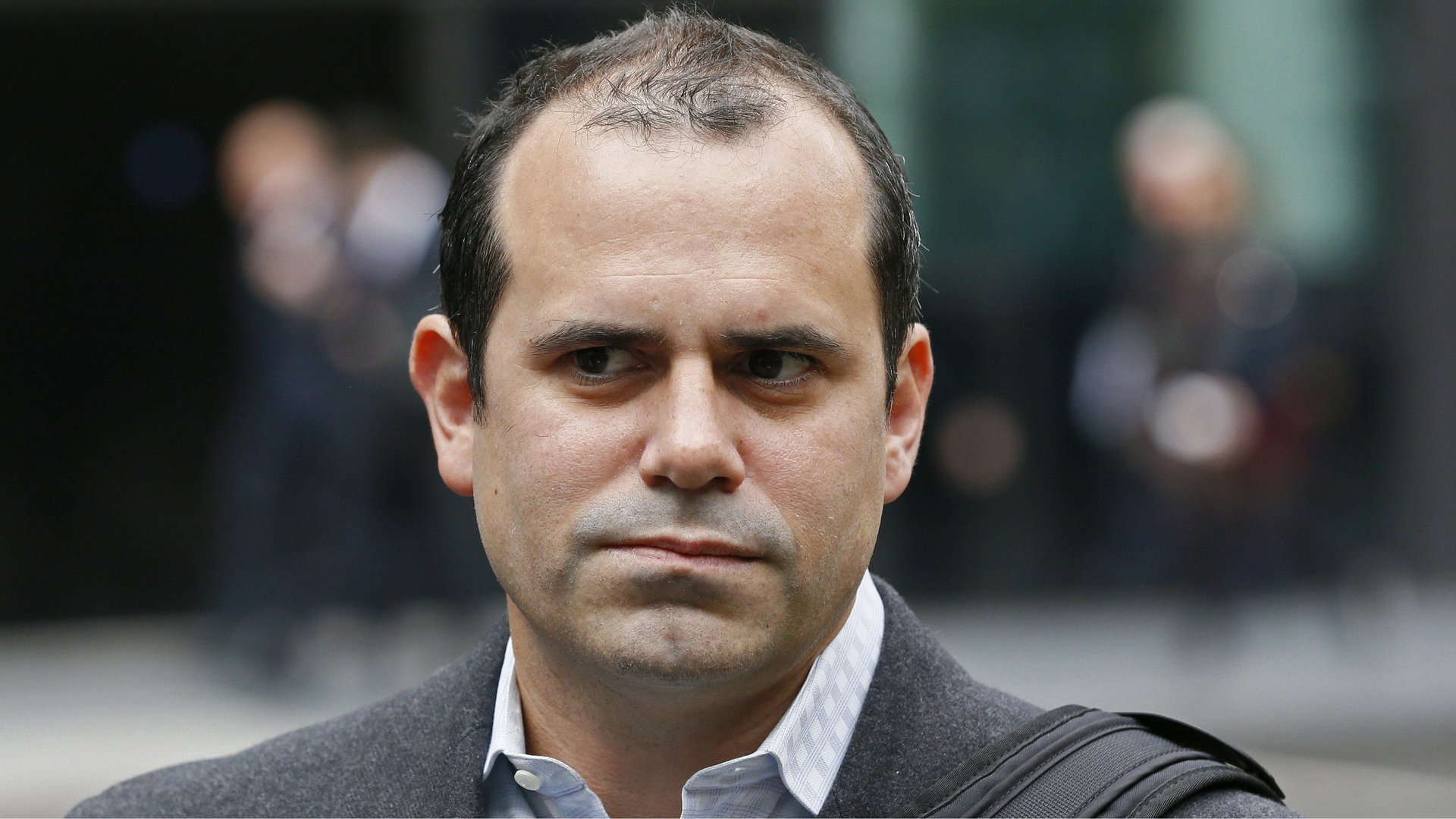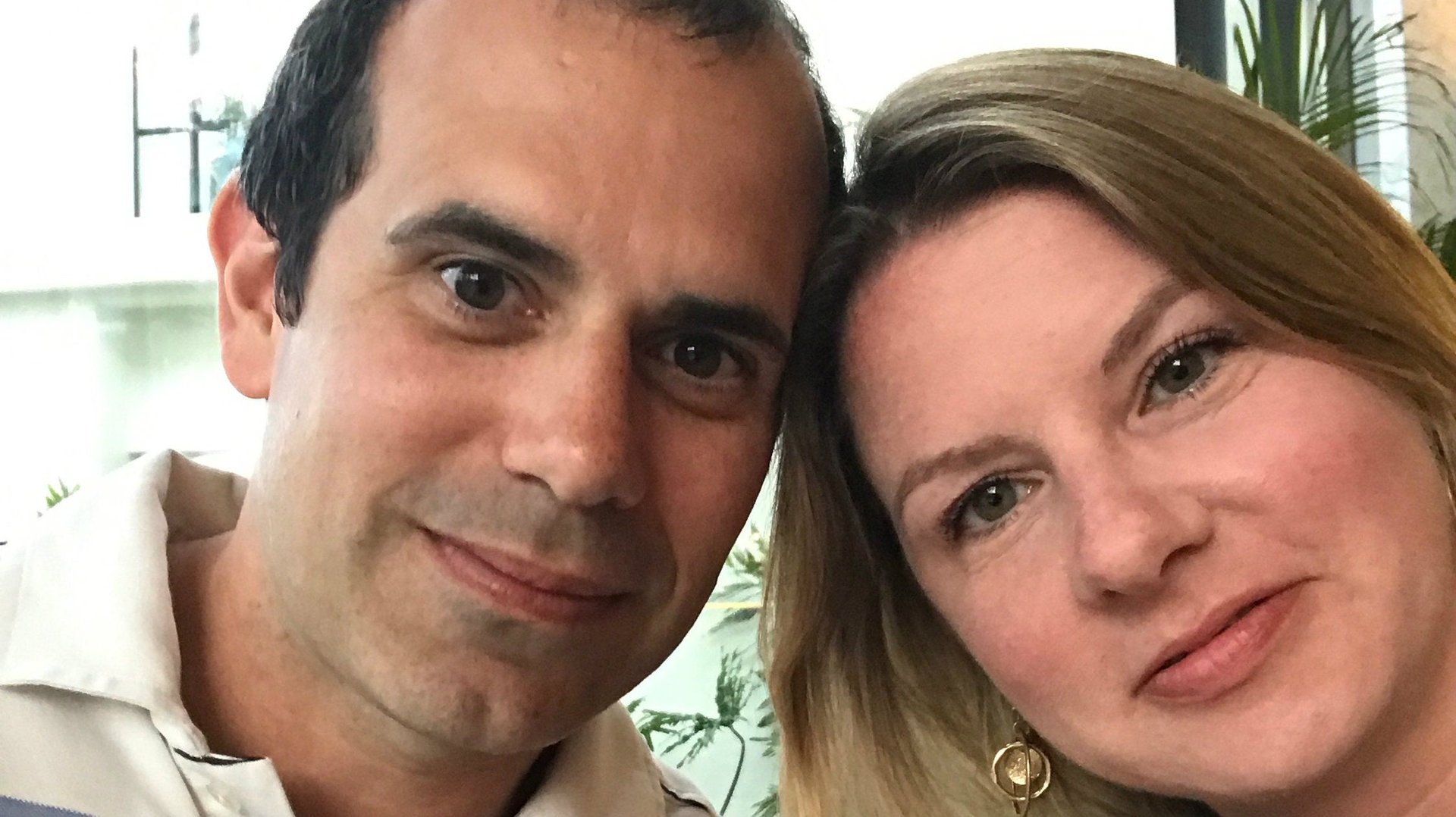One of the only traders convicted of manipulating Libor could soon be acquitted
Alex Pabon was one of four traders convicted of manipulating Libor in July 2016, and served eight months prison in the UK. However, the former Barclays trader thinks he has a shot at acquittal, with pivotal appeal proceedings taking place in the next couple of weeks.


Alex Pabon was one of four traders convicted of manipulating Libor in July 2016, and served eight months prison in the UK. However, the former Barclays trader thinks he has a shot at acquittal, with pivotal appeal proceedings taking place in the next couple of weeks.
His appeal hinges on what helped get two other convicted traders acquitted—doubts about the reliability of evidence given by the prosecution’s expert witness, Saul Haydon Rowe. Rowe, who worked at a company called Turing Experts, was hired by the UK’s Serious Fraud Office (SFO) to give testimony in trials involving former traders charged with crimes related to Libor fixing, including Pabon’s.
Quartz has learned that on Nov. 21, there will be a hearing via the Court of Appeal in London on whether the SFO will have to disclose all of the materials used in Pabon’s trial by Rowe—his analysis, conclusions, and subsequent reports on how he believed Libor was manipulated—that the SFO previously refused to disclose to the former trader’s defense team. If this is considered relevant to the appeal, proceedings will start on Nov. 24. If the appeal is successful, Pabon could be acquitted within a year (pdf).
The SFO said it cannot comment “on the disclosure of materials or the hearing, as it is an ongoing legal matter. We also cannot comment on a complaint lodged about the conduct of our expert witness, Saul Haydon Rowe. The police are seized of the matter.” (Former traders charged with offenses have filed complaints with the police about Rowe.)
Rowe’s testimonies in four traders’ trials
In addition to Pabon’s trial, Rowe testified as a witness for the SFO in the trial of Pabon’s successor at Barclays, Ryan Reich, and Stylianos Contogoulas; in a retrial earlier this year, after a jury couldn’t reach a verdict in their original case, both were acquitted of conspiracy to defraud charges. Rowe also testified as a witness for the SFO in the trial of Tom Hayes, who is currently serving 11 years in prison.
Reich and Contogoulas were acquitted after their defense teams called into question Rowe’s ability as an expert witness. Rowe was found texting friends (paywall) asking for definitions of trading terms while he was giving evidence during Hayes’ trial in June 2015. Texts included, “I don’t know the usual trades stir [short-term interest rates] people put on but I’m learning” and ”Got caught out on a couple of points, eg where yen Libor futures contracts trade. Not my area, and I didn’t get one sound bite in that I wanted to get.”
In court, Reich’s lawyer said ”you have misrepresented your expertise to the SFO and to the juries. I suggest you have failed to comply with your basic duties of disclosure, and that you have concealed, rather than revealed, the sources of statements which you have presented as your own opinion.”
Rowe replied: “There are many suggestions. And I think I disagree with them all. They are basic questions, so I could make sure I got the basics correct.”
Pabon’s appeal claims that “the SFO’s use of Rowe as an ‘expert’ witness, and the court’s failure to properly instruct the jury, are completely unacceptable and make the conviction unsafe.” Hayes is appealing on similar grounds.
“It is almost impossible to have more damning evidence against a court expert,” Pabon told Quartz. Rowe no longer works at Turing Experts—the firm published a notice of his termination as a director in June (pdf)—and the company is being wound down. Quartz called the company number and reached Stuart Murdoch, who used to work there and said the company does not exist anymore and he did not know where Rowe was.
“Not very optimistic”

Pabon, who is American, will not be able to attend the hearing in person because since he was deported from the UK, he is not allowed to return to Britain unless he petitions to have his ban waived, after a decade.
Since he was released in March this year, he’s been focused on spending time with his family and is expecting a baby girl in January. For the first three months after his release he “did absolutely nothing work-wise” and now says he is trading on his own account. “I still am probably at 20% capacity,” he said.
The next week could change everything for him, even though he is “not very optimistic” about the prospects for his appeal. Pabon says that if he loses the appeal at the Court of Appeal, he will head to the Criminal Cases Review Commission. The CCRC is seen as the last resort when the rest of the appeals process has been exhausted. This is a route that ex-traders Jay Merchant and Jonathan Mathew are also pursing, after their appeals against convictions were unsuccessful.
“The SFO knows the truth: traders at many banks were making Libor requests and many traders knew this as the requests were open as they were conducted over company monitored email and cc’d to many people at the bank,” Pabon told Quartz. “I will always maintain that I am innocent of charges that I was accused of. To prove them, the prosecution was supposed to prove beyond a reasonable doubt that I knowingly did this dishonestly.”
Since Barclays became the first bank to settle with US and UK authorities over Libor manipulation, a number of traders across of the globe have been charged with criminal offenses. In Britain, five have been convicted and eight acquitted. In the US, an appeals court overturned the 2015 convictions of two former Rabobank traders in July, reversing the result of the country’s first criminal trial related to Libor manipulation.